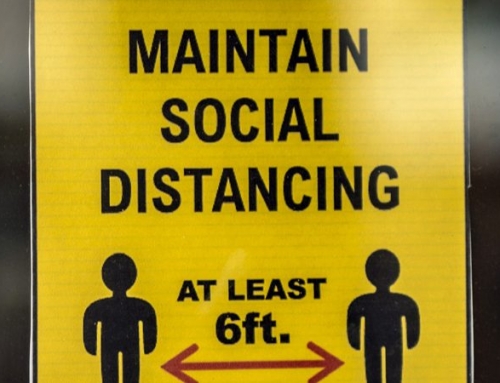Websites can’t perform well without good quality links. Even if your SEO is so good that you’re enjoying a decent amount of traffic from keyword placement alone, you will be missing out on thousands of potential visitors if you don’t spend time establishing links with other sites. It isn’t simply a case of sheer quantity, though. Quality matters and associations with spam sites will potentially cause more harm than good. Similarly, connections with high value, well respected sites will boost your reputation as well as your traffic. This is Probella’s guide to effective link building in 2019.
Do:
1. Use the connections you have irl
Remember the digital world is connected to the physical world and capitalise on the networking you have already done in real life. If you have established connections with other businesses in your industry, through working on projects together or using one another’s services, make sure you reach out and ask if you can get a link to their website. Providing you are willing to return the favour; most people will be more than happy to do this for you. The best approach is to send an email but remember to take advantage of face to face conversations in meetings or day to day life, too.
2. Be obsessive about the quality of your content
Poor quality content harms your potential ranking and also makes you seem unprofessional. Every piece of written text should be checked thoroughly for errors, images should be of the highest quality your cms can support and all design work should look professional. If you try to build links with other sites while your page still has broken links and is littered with spelling mistakes, you won’t be very successful.
3. Persistently pursue links to high value, authoritative sites
These kinds of links are the most difficult to build, especially if you are a business or new to your industry, but they are also the most valuable. Don’t be discouraged if the first couple of attempts are rejected as many industry leaders get multiple requests for linking each day. Instead, try to present your site in a way that makes it appealing for both customers and other industry experts. One or two links to well established sites with a large amount of traffic can be more than valuable than 10 links to poor quality or lesser known sites.
4. Approach link building as an ongoing part of the business.
Link building isn’t like working on a stand-alone project. Like cleaning or admin, it never really ends. Many businesses fail because they approach link building as a one-off job that can be done at the start of websites life cycle. This never works as you need to make sure you are constantly building new connections and maintaining the ones you have already established. Like SEO and content creation, link building is a process that takes time, effort and skill.
5. Make sure everything on your site is relevant to your industry
This includes the links you have. There’s no need to accept invitations from irrelevant sites, just for the sake of having some connections. Similarly, trying to force traffic to your site by using spam style, mass linking tactics will ultimately lead to hundreds of non-human bots scanning your content. That might look great when you check your stats, but it won’t mean anything in the long run.
Don’t
1. Link with obvious spam sites
You know the type. You click on one of the first links you find after entering a search term, only to find a shoddily constructed WordPress template full of barely readable blogs and repetitious, low value content. There are a lot of this kind of site out there at the moment, but Google are already starting to penalise them pretty heavily. Don’t be tempted by the seemingly quick return, users who associate your brand with spam won’t see you in a positive light.
2. Use too many of the same keywords
Though many web developers are still convinced this works, it really doesn’t. Google are now penalising sites that overuse anchor content in a way that makes it seem repetitive. Organic, natural text that flows as if it has been written by a human is what you are aiming for, not just blocks of writing with several keywords hastily crammed in for the same of density.
3. Engage with black hat seo practices at all
In the worst-case scenarios, your site can be shut down. At best, you look a little bit shady and run the risk of damaging a potentially successful business. Hidden text links and things like cloaking are technically effective, but in 2019, the search engine algorithms can detect these practices more easily than ever. If you are caught doing this, it can take a long time to recover from the penalties that will be imposed on your site.
4. Use Link Directories
Put yourself in the position of a casual web user. If you end up being taken to one of these sites, it’s confusing. There’s nothing to read, nothing to watch and the whole thing seems about as interesting as spreadsheet. Though they did have their uses in the early days, this kind of site will eventually become obsolete and represents an old-fashioned approach to link building that is best left in the last century, where it originated.
5. Use Fake Social Media Accounts
This practice is less commonplace now, thanks to improved security on social networking sites, but many businesses have tried this approach to bolster their overall number of links. It rarely works and techniques like this ultimately lead to frustrated or confused web users and a poor reputation. Links to genuine social media profiles are ok but should be used sparingly and only when they’re genuinely going to provide you with more organic traffic.






